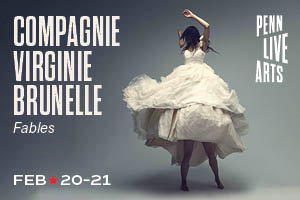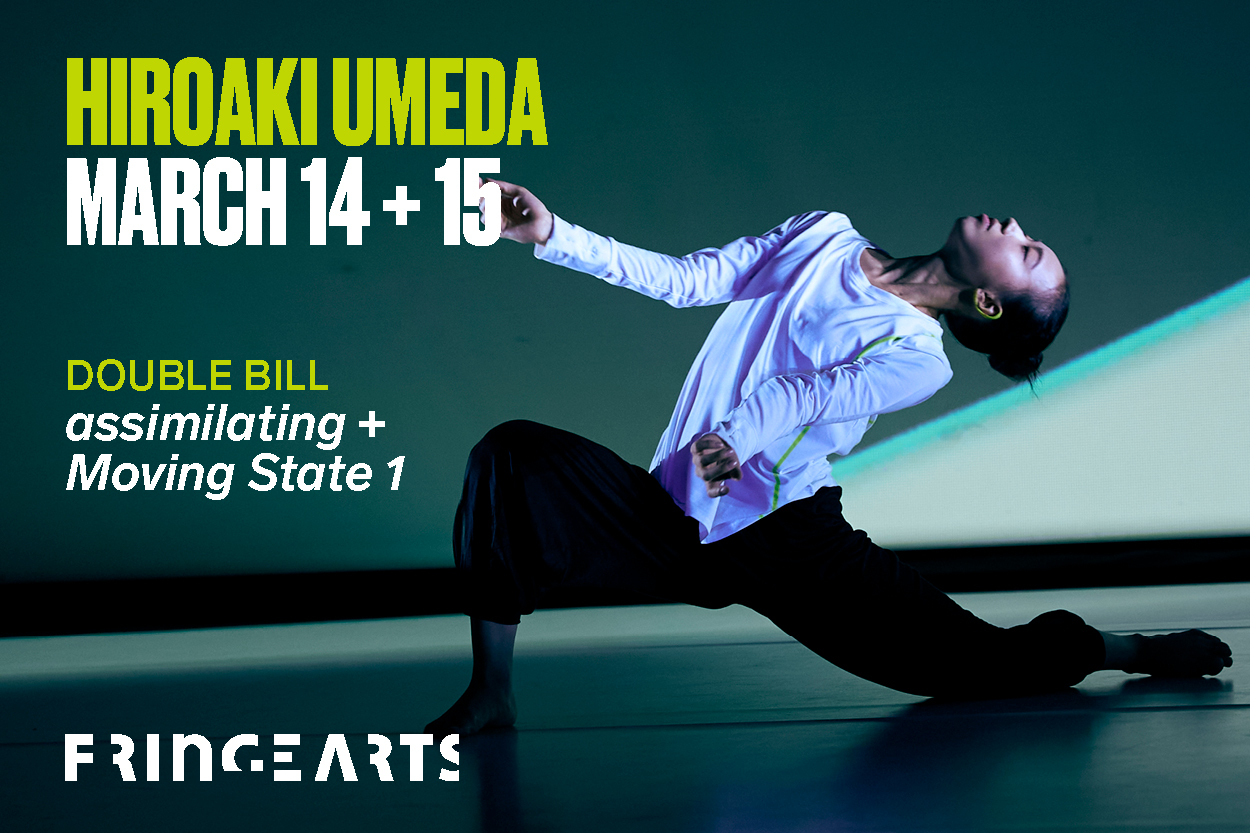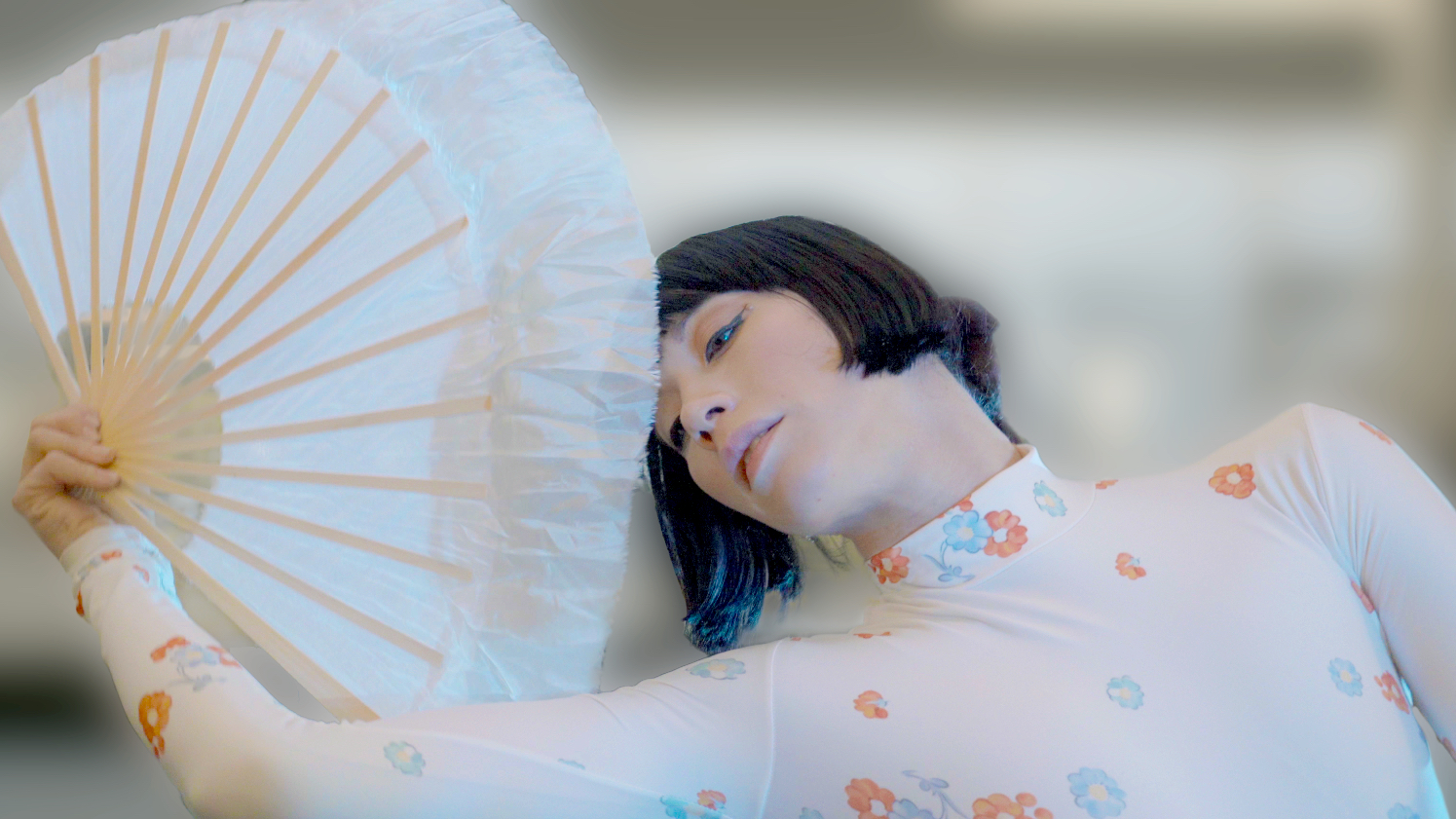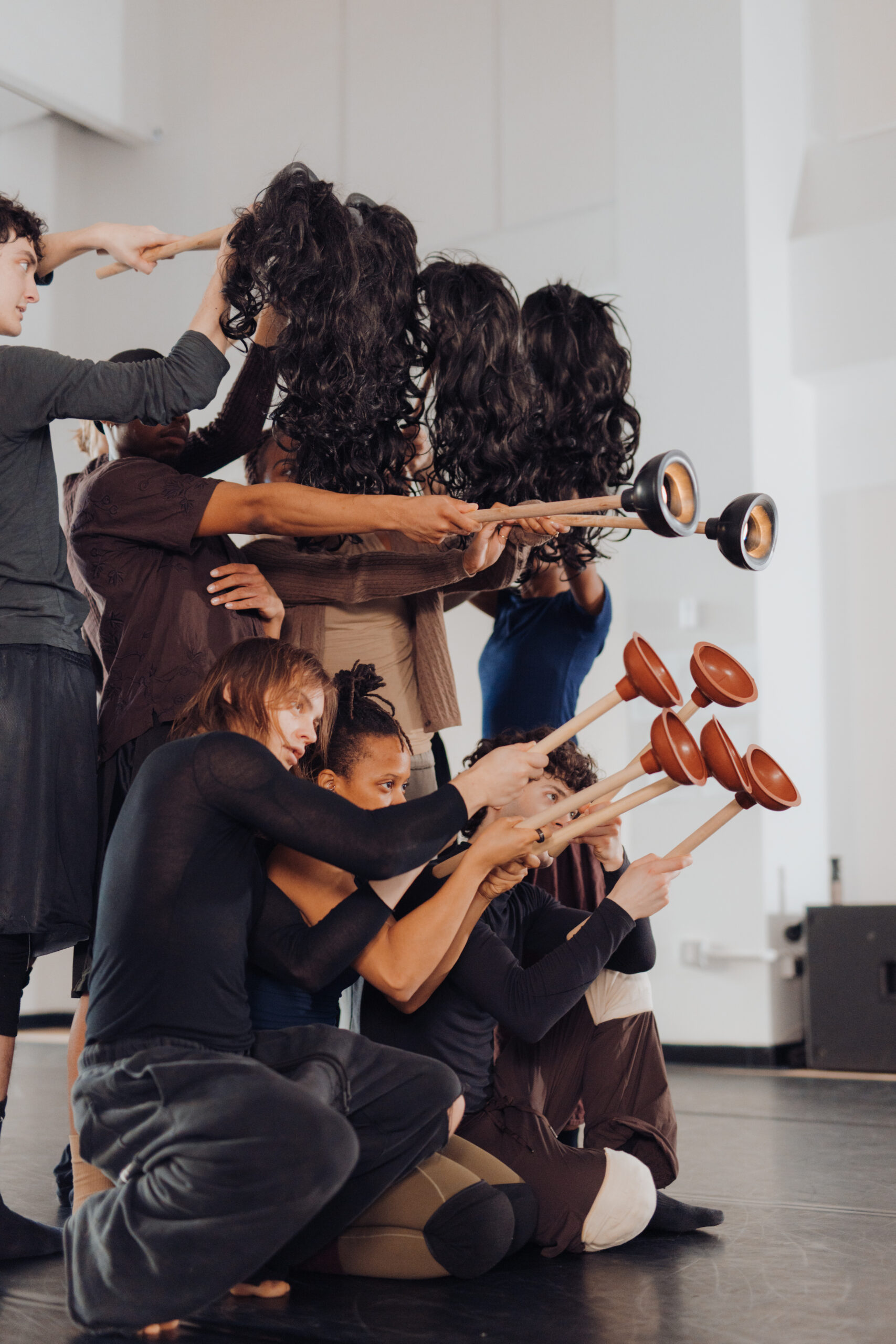1A: Naked is good.
I dance. I danced. That part of my life sometimes seems over in the bustle of a professorship, three boys, literary life. I take ballet classes when I can, yoga. Writing about dance is a new thing I’ve been doing. The work I’ve been writing about has challenged my ideas about virtuosity and gender and representation. This fall I was asked to attend a burlesque/dance performance and to comment on it. I was asked to do this by Annie Wilson, a choreographer and performer maybe a decade my junior. She is a woman whose thoughts, work, and writing I respect deeply.
She said this about the work: “You can be naked but not sexual. You can be not naked and sexual. You can be sexual and smart and funny and like boring and… you can be all of those things, and I think that’s part of the pro-sex feminist movement.” In Lovertits (produced as part of the Philly Fringe), there was nudity that was sexual and some that was funny and smart and some that was boring. I went to the ten o’clock Saturday show with my husband, and everyone in the audience was respectful and there was a bar in the back and the mood was, if anything, celebratory. But I left unsure of my own mood.
Unsure just who defines our nudity.
1B: Some poets rape.
I am a poet. Poetry is not a profession, it’s a calling. Many of us this side of the millennium not only make our work sitting at screens, we also build our fragile net of co-conspirators through emails and social media. Most of my poet friends I’ve met a handful of times. We host each other when we travel, buy each other’s books, promote each other’s work across our platforms. Did I mention poetry doesn’t pay? A handful of my po-friends live in Philly and are thus accessible to me in the flesh—I run into them at readings and in restaurants. We hug. We drink. At least one poet I know has kids my kids’ ages. Thank god for her.
A few months ago my Facebook feed blew up. With rape. With sexual predation and assault in the Bay Area and Brooklyn. With solidarity and derision and endless comment streams. These events should feel far-flung, but they occurred one after another in po-world. My town. Everywhere I looked I saw trigger warnings. Clicking past them, I found stories of young women who thought that the community I’ve fostered and that has fostered me and my work in cozy pockets and bookshops and bars across the country was safe.
2A: I ask Danny about Lovertits.
Danny is an ex-Catholic from central Illinois, and although we’ve been married for fifteen years, he still retains remnants of his old prudishness (especially concerning sexuality in art). He was nervous entering the theater but laughed at Ilse Zoerb’s talking breast-eyes—hands above nipples, moving when she spoke in a sort-of mammary ventriloquism—and by the end, he was able to say, “I got numb to the nakedness.” I think Annie would consider this a success. For him, the bodies transformed during the evening from objects of titillation to mere bodies doing their thing on stage, a thing he could respond to without being blinded by the idea nor the reality of skin and breasts and pubic hair.
Me—I couldn’t stop thinking about my own reactions. I couldn’t turn off the double and triple consciousness I’ve developed over decades. So as I watched the tour of Old-City-as-body, I thought of the replaying of the old colonialist narrative landscape-as-woman/woman-as-conquest, and I wasn’t certain what difference it made that a woman was giving this tour. I felt it was supposed to make all of the difference, and I wasn’t sure it did. But it was sexy and funny and smart. Irony in art often has this effect on me—it dresses up in humor and intelligence the plight of the powerless. It is funny that women’s bodies are writ as places. It is. In sixth grade health class I was taught (and I quote) “the vagina is the home for the penis during intercourse.” It still makes me laugh. It’s funny but it reduces, and I have never been exactly sure where our laughter gets us.
I am a pro-sex feminist. But I don’t know how we reclaim the female body in art, especially performance. Observation changes the observed, changes intended meanings. How do you reclaim something that, while rightfully yours, has always been used against your autonomy?
When Christina Gesualdi’s yogini-character entered, she made me happy in the same way Andy Kaufman’s characters did/do: by being so much a certain thing that she could be no other. She wafted through the space, pausing often to make a half-comment or hum or just feel the air, as if on somatic acid. This persona was impossible for me to find sexually fraught. I started wondering what kind of human being could see her that way. The thing is—I know there are people like that. They come out to ogle during Slut Walks. I wish I could dismiss their presence in my world. To paraphrase a self-help meme I need to listen to: How others respond to [my] art is none of my business.
2B: My son Simon is fifteen.
Simon is the oldest of my three boys. I decided to have a talk with him. We were in the car. He’s captive there, and I don’t have to make eye contact—a social skill sometimes difficult for both of us. I’m less squeamish than my Midwestern husband discussing sex, so my boys are used to me initiating “the talks.” This one was about rape: date/acquaintance, gray, statutory, stranger. I write those words like these acts are easy to discuss, to define, to categorize. They aren’t. Part of my dis-ease with the things I’d read was that I couldn’t clearly name them though they were described in stomach-churning detail.
As an academic (that’s the profession), I have access to university lingo—the way social issues are discussed even on the cusp of change. So to my son I said the new things in the new way, things my brothers weren’t told twenty years ago because twenty years ago “no means no” was new. I started in on the recent California decision dealing with sexual assault on campus. Simon stopped me. “Mom, I got this.” I must’ve blanched in the rearview because he quickly added, “I saw a thing on Tumblr.” I nodded. The internet mutates so much faster than LGBT stretches into LGBTQIA.
The persons accused in my feed (in links to twitters and posts and essays in online magazines) were predators, and they’d been outed. Exposed, they hadn’t denied the details of their behavior, only the label. Rape. They had coerced, manipulated, and climbed onto and inside of intoxicated women they knew did not want to have sex with them. Still, there were poets, both men and women, defending them.
Why? Because the sound of the women’s multiple no’s were too soft, they wrote. Kind-of wrote. Implied. One asked timidly, “Weren’t they?” In a chilling account, one young woman admitted to participating in the sex she didn’t want in order to get it over faster. My chest tightens writing that. How easy I—and she by being honest—have made it for you to dismiss her.
3A: I can’t not worry.
About people and connectivity and about raising our art responsibly before we send it out into the world. That’s me. I’m a mother. I’m conflicted.
I firmly believe that it is neither a performer’s nor a choreographer’s responsibility to account for the way their art will be received. Even if I didn’t believe it, let’s face it: it’s impossible. But I wish we had more control.
In political art, which Lovertits clearly is—both in its engagement with second-wave feminism (“the personal is political”) and the third-wave whole-hearted embodiment of that ideal—the art will inevitably mean different things to different people. Those who agree with its message promoting women’s bodily agency will embrace it. And those who come to the theater not caring about messages… well, I wish I didn’t worry about them as much as I do.
3B: I can’t not worry.
Simon is a nerd like his father and me. He plays D&D and runs cross-country. In the tenth grade, he is just one inch over five-foot tall. When he was young I worked with him on essential life skills like giving people enough personal space and not taking every “Please stop that” as a challenge to continue or even exaggerate some irritating behavior.
Simon is kind and smart and has a wry sense of humor, and he loves babies and kitten videos and The Walking Dead. Last year, when I spent the year in up-upstate New York at St. Lawrence University with my boys but without my husband, Simon was the human being I spoke with most, the one who babysat his brothers when I had faculty meetings, who kept me awake on the drives back home to Philadelphia—ten-hour drives that should have taken seven, but, you know, snow.
In the comment threads I couldn’t stop reading, some poets stood up not for these men, but for hypothetical men, maybe because they know or have known boys like Simon. Persistent, awkward boys. Boys who take longer finding love, who, facing rejection, use the term “friendzone” until their mothers explain to them the reasons not to.
4A: I believe in preaching to the choir.
I do. But I also believe in having as full an understanding of the pew-haunting creepers’ takeaway earworms as I can. Because creepers aren’t all harmless. Hell, some of the choirboys/girls aren’t harmless either. (See 1B.)
So, at the close of Lovertits I was of at least two minds. I was thinking: “This is good. It is good that women are making things that laud women’s bodies in ways women’s bodies are not often lauded—in the full gamut of weirdness and wondrousness.” And I was thinking: “Performance is one of the things women’s bodies are always doing. Is it possible to subvert our daily performances with a theater performance? One whose nakedness cannot be anything but problematic because that nakedness shines, blinding some to any more nuanced or political reading than ‘Titties!’ All that lovely weirdness—will it be reduced to a strange-taste smorgasbord? Will the women be judged as unworthy of their own nakednesses?”
And I began to see something I didn’t see before. My own internalization of the mechanisms that surround. My own fear of my own body—and how that fear is inextricably tied up with the threat of sexual violence but also with the fear of judgment and derision and aging and irrelevancy.
Bodies are the locus for most meaning. The galloping amorphousness of Lovertits opened the gates to so much of it for me, my horses got tangled.
4B: Don’t misunderstand me.
I didn’t have a talk with my son because I am worried about him. I’m not worried about Simon. I married his dad, who is just like him—a man who would never and has never, in all his professional competitiveness and scientific tenacity (he is a molecular geneticist), pushed me to do anything I did not want to do. Together we have raised a boy, three in fact, who love and respect other people’s autonomy and who know that women are indeed people.
So when I talked to Simon, although he already knew what I was saying, I said it again. That’s how I raised him to know these things. I also told him, again, that he couldn’t stand by and watch one person hurt another then go on to blame the cruelty on bad communication.
He gets it. When the time comes, when he sees it, he will say something. And he will see it, though I wish that part of the equation were less certain. I’d trust him with any one of my po-friends’ children—as a babysitter, a friend or (down the road though not too far) a boyfriend or lover.
There are monsters out there who resemble us all. All of us, without uncomfortable and repeated discussion, without the conscious evolution of our words and actions, have the potential to be monstrous. Those editors and writers who abused their small fame to use the bodies of others, to bruise them at a level beneath the bone: they are my son without the talking to. In other words, they are nothing like him. We are all like them.
5A: Lately, my way of thinking is to write.
I used to move to think. One of the biggest conundrums for dance artists is this: their relationship to their bodies is vastly different than many of their audiences’ relationships with their own bodies. When they look out into the theater they might expect to see recognition: to see people remembering what it is to be at home in their bodies or moving joyously within them, or even moving with great effort. But often it isn’t true, or it’s only partly true. Performers see—also and instead—watchers, observers, critics, voyeurs.
There is a reason people treat dancers as creatures. What dancers do, naked or not, is alien to so many. It is difficult then to cross the multiple chasms—to make real eye contact across the proscenium stage, across the gulf between types of embodiment, across the gap between exposed and anonymous, across the false-binary rift between and among gender(s).
There is no way not to be a spectacle.
But is it possible for spectacle to be a place of enlightenment? And if it is—under what conditions? I have always leaned toward alchemical ones: by experimentation we may come to some magical recipe that reverses wrongs and changes the world. I’m not half-joking. I’m for experimentation. Both in poetry and on the stage. Unabashedly. But the body is a special case. It isn’t material only. Because we aren’t.
5B: And there is this other thing:
The self-reported quietness of the assaulted women’s words—their inability to be loud in the face of harm. This part was and is more painful to me than I can explain. How, after their gentle refusals were ignored, they tried their damnedest to draw in. To disappear. This quiet is something I do not see in my sons, have never seen.
I turned 42 this year, and I know I am middle-aged because these women did not initially remind me of me. They seemed more like my students or like the girls-soon-women that Simon knows from school. Daughters I could have had but did not have. On my computer screen, in an attempt to say something to my community—needing to say something because I am a part of it, responsible for making it safe though nowhere is safe from our flawed humanity—I wrote a status update. Yes, that is what we now do—our way to talk through our rearview mirrors when making eye contact is too difficult.
I wrote: “I have a 15-year-old son. This evening we talked about yes means yes and enthusiastic consent and the fact that he will eventually find love but until he does find it and it finds him back, there is no way—no way—to manufacture intimacy. Friendship is friendship even if you want more and it is a gift in and of itself, not a consolation prize.”
Then I kept writing: “If I had a daughter, I don’t know what I would say. I think I would say—your body is a special case. It is so close up against your soul. You might think you wear it like clothing but it is not like that.”
6A: Our bodies are Rube-Goldberg machines.
They do and mean so much more than is strictly efficient. So we tend to ask them to do everything: to live, love, eat, fuck, fight, play, perform. Historically, female and minority bodies have also been made into things in the public sphere. They’ve been owned and beaten and co-opted as labor or as art- and fetish-objects or capitalist props. Can you display a body, a naked body, without invoking that tangled mess, without opening that Pandora’s box?
I don’t think you can.
But I also don’t think that means you shouldn’t. I couldn’t simply celebrate while watching Lovertits, because I couldn’t stop my mind from racing through my understanding of women’s nudity (of much nakedness) in the history-of-art and science-textbooks and of circus-displays. I couldn’t simply be happy to be among feminist-identified hipsters without thinking of the rapists in our midst. (But I will not be cowed by them.) I couldn’t take away a single idea from this show, even the idea Annie may have had in mind. I’m still unsure that I can define even my own private nakedness.
6B: My Facebook post continued—
“You cannot part with your body, even if and when you want to. And… you will want to. You cannot even when separation would feel like a blessing. What happens to your body remains with you.”
I cried a little then. Because I do not have a daughter. And because my mother did tell me these things. She told me my body was a temple, that no one had the right to it but me. I have been so very lucky: I have not been raped. But mostly I cried because, in the moments described, moments of expecting to be treated by someone “safe” as a full human being and not being so treated, I have no idea how loud I would have been.
If I had a daughter and I said those things to her, if she were like me—like I was at fifteen and twenty and twenty-five and thirty—it would not matter. She might dig a hole inside herself and try to hide there, not imagining that it would become another type of wound.
I have done this many times. Dug down. Hidden. I have been quiet, a quiet that is like not-breathing, a quiet like a wish held until it dies. I want to know—how will I ever forgive these women their quiet? How will I ever forgive myself for that?
***
It’s spring now–and what I think I know is this: I want Annie’s voice out there. I want it laughing. I want it loud.






